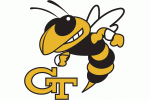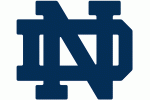The United States is unique, no other country takes college sports as seriously as the USA. Other countries certainly do have fine college athletic departments, but none can compete with the financial means and funding that the American colleges receive and generate. To put it in perspective, total revenue from college sport in 2019 was nearly $19 billion USD, a huge figure. According to the United Nations, the 20 countries with the lowest GDP barely make $19 billion USD between them annually. And with so much money at stake, the gambling world has not only noticed college sports and the huge potential it has for the industry but has firmly taken a massive interest in college sports gambling.
Sports betting all over the world is very popular, from India to the United States, so much so that legal sports betting accounts for 40% of overall gambling revenues each year, although online gaming sites such as netticasino still are most gamblers choice. The global gambling industry is worth in excess of $100 billion USD, much of that is wagered in the United States, with college sports being a favorite for many gamblers. Online casinos have been branching out from the traditional casino games such as slots and poker, try casino boni for a great choice of online games, and are now challenging the traditional bookmakers. But the question remains, should we be betting on unpaid athletes who are still in the education system?
Is There Really Any Harm From Gambling on College Sports?
With ticket sales down for all college sports over the last year due to the Covid-19 pandemic, and athletic departments having budget cuts they are looking to make new revenue streams from other sources. The University of Colorado, Boulder has already signed a 5 year deal with an Australian betting firm to advertise their services at Boulders University sporting events. Whilst the players and the coaching staff are not allowed to place bets on the games, it has raised eyebrows in local government and the effect it could have on other students on campus. This of course has led to concerns over game fixing and corruption, young athletes could be coerced into throwing games or underperforming.
The University of Colorado is not the first in the United States to welcome sponsorship from gambling firms, and many more are exploring deals to bridge the financial gap left by the pandemic. The other point many argue is the moral aspect of betting on non-professional athletes and the expectations placed upon them. The pressure to perform is already great, do these young athletes need to essentially be held accountable for big money wins and losses?
Who Is Ultimately Responsible For The Wellbeing Of College Sports?
Regardless of the teams and athlete’s performances, winning or losing, the main concern is the physical and mental health of all the young college sportsmen and women, coaching staff, and parents alike. The National Collegiate Athletic Association or NCAA is a non-profit organization that regulates student athletes from 1268 colleges and universities based in the United States and Canada. Based in Indianapolis, Indiana the NCAA is responsible for over 480,000 college and university athletes and is charged with organizing and developing all athletic programs for student athletes. The NCAA is also responsible for:
-
Ensuring colleges and universities have adequate medical institutions on campus.
-
Ethnicity and race are respected.
-
Mental health is treated as seriously as a physical injury.
-
Students with disabilities are treated with the same respect and given the same opportunities as able-bodied athletes.
-
International students are encouraged by colleges and universities to enroll.
Not all student athletes are represented by the NCAA, with some sports such as rowing opting to have their own governing bodies, which do work in close conjunction with the NCAA.
The Money Involved is Just too Big to Ignore
As with any sport that has mass appeal there will always be huge sums of money involved, whether it is sponsorship of a team or institution, or gambling, the money is just too much to ignore. In 2018 the United States legal gambling industry was worth approximately $55 billion USD and rough estimates place the illegal gambling market worth twice as much. Sports betting accounts for 40% of legal gambling and most of that is college and university sports betting. Many people argue that the institutions and players should benefit from this money, but apart from a few sponsorships the gaming industry has been either legally constrained from contributing or has been reluctant to.
Online casinos have been quick to adapt to the market of college and university sports betting, investing time and money ensuring their customers can place bets on all the sports. March Madness (the NCAA Basketball competition featuring 68 teams) alone generates over $1.2 billion USD in television advertising for the networks. The American Gaming Association is expecting to turn a profit of over $10 billion USD this year alone. With so much money it is hard for the NCAA, college, and university sports teams to not want what they believe is their fair share.
Summary
It is widely believed that most of the bets placed on sports are by men aged between 45 and 64. This understanding is changing with more and more women placing bets on sporting events, and with college and university games being broadcast and reported on constantly, naturally, younger people are now gambling more than ever. Gambling by college and university students has been steadily increasing along with the popularity of sports, so much so that many educational institutions now employ not only drug and alcohol counselors but also trained gambling counselors.
Gambling if done with restraint and for fun is a great way to watch the games of your favorite teams, and hopefully make some money from their success. For most people, this is the case, but many younger gamblers are inexperienced and lack the knowledge to be successful gamblers and this is when problems can arise. And for the athletes playing in these competitions, knowing that depending on how they perform as an individual or team member, could have serious effects on people’s lives. It is a lot for those young shoulders to carry.



















